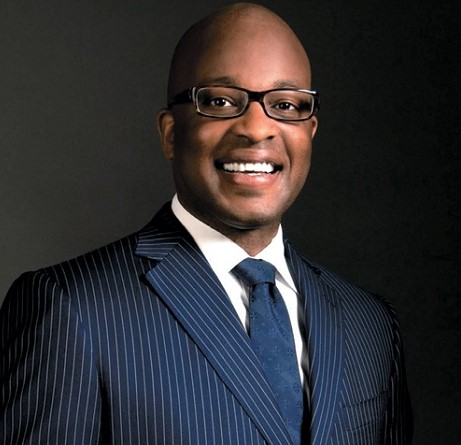BlackRock CMO Frank Cooper on Resilience, Purpose & Crisis Management

Frank Cooper: "A cross-disciplinary approach is the best way to deal with complex problems. " With senior positions at some of the largest and most successful companies in consumer products, media, and financial services, BlackRock CMO Frank Cooper is uniquely qualified to share insights on resilience, the power of a de-siloed approach, and what our COVID-19 reality means to the business community.
Philip McKenzie: Over the course of your career, you have held the CMO role in three very distinct organizations: PepsiCo, Buzzfeed, and now BlackRock. What have you found to be consistent across all three organizations from a marketing perspective?
Frank Cooper: Changing industry, whether you're a marketer or not, is not for the faint of heart but it is swiftly becoming the new normal. I am motivated to help others find their potential, and I believe in business as a vehicle to accomplish that. Whether at PepsiCo, Buzzfeed, or my current role in BlackRock, I can take those who were historically marginalized and pull them to the center stage. Specifically, when I think like a marketer, I begin with the idea that I can use the marketing function and what it can inherently deliver to have a real impact. I have learned that once you have a core set of expertise and technical knowledge, you then have a chance to make the marketing function useful within the organization. Each organization I have been in, regardless of industry, has been open to rethinking its best practices and committing to innovation. The "new normal" of a competitive landscape demands it.
McKenzie: Marketing tends to be dominated by people who are sector/category specialists. What specific skills/abilities made it possible for you to have successful transitions?
Cooper: It begins with possessing a core marketing skillset that is applicable across the CMO roles I have had and have been able to take and utilize from one seat to another. Reflecting on what I learned at PepsiCo is starting with data and insights, using that to tell a story and that process leading to a strategic position. I'm using that process to develop creative strategies, creative ideas and then, in turn executing and measuring the impact. I create a reinforcing feedback loop and then continue to iterate as you get more data and learn more during that creative journey. So there is a continuity of technical skills and in terms of personal qualities, I'm inherently curious and enthusiastic about learning. Change can be scary but you have to embrace it and see it as an opportunity to learn. Finally, I always seek non-obvious sources for different ways to understand the world and the challenges we face. I pull from science, the arts, and music. Anything that can give me an idea of what is relevant within the broader culture is potentially useful.
McKenzie: Often, when we think of financial services and how marketing functions within that industry, you don't expect to hear "culture" so front and center?
Cooper: I intentionally try not to go too narrow and too siloed in my thinking because I believe that a cross-disciplinary approach is the best way to deal with complex problems. Every industry has its jargon, economic structure, and history that evolve over time. The most exciting part to me is that you can use a cultural lens to understand the industry and economic model better and gain another perspective. Financial services are inherently rational, and there is quite a bit of a scientific approach to it, but at the core, this still involves people, and so there are emotional elements are well. The way we think about and talk about money is part of a larger cultural conversation. It isn't all financial literacy, but it's how people feel about their relationship to money. There is an incredible opportunity for culture to play a significant role in that conversation.
McKenzie: Why do you think there is a growing comfort level with having a culture/human-centric conversation in financial services?
Cooper: Culture is instrumental in shedding light on potential market opportunities. It is more complicated than ever to rely on traditional demographics as a proxy for how people think and behave. We have better ways to determine how people group together, and it's more fluid than it's ever been. That's a cultural phenomenon. So in financial services, I want to lead from the data side then use culture to superimpose a story on top of it that brings out the human element and makes it all come to life. There's a function of listening and absorbing and then translating that story in a way that makes people receptive to it. As marketers, we have to engage in humble inquiry and listen intently to truly understand. It doesn't get more human-centric than that.
McKenzie: In both 2018 and 2019, BlackRock CEO Larry Fink wrote investor letters citing purpose as a vital part of the operating strategy of the firm. As purpose has become a regular part of marketing jargon, how do you incorporate it into your perspective as CMO?
Cooper: When I first started thinking about how to bring purpose to life within BlackRock, I began by stripping away the conventional thinking and getting more foundational. The brand has to be an expression of the company's purpose. The idea of brand purpose can lead to confusion because it sounds like it's only a marketing thing and that is entirely wrong. The purpose is the ultimate goal of the business; it's why the company exists. It's not what or how the company operates; it is how they contribute to society to fulfill unmet human needs. Once you buy into that comprehensive definition of brand purpose, it becomes a significant part of your organization strategy. Marketing then allows you to express it holistically.
McKenzie: We are facing new challenges in many industries in light of COVID-19, but marketing and advertising have been especially hit. What are your thoughts on our new reality?
Cooper: I think we are still at the early stages of understanding what type of impact COVID-19 is going to have on our industry. We do know we are in a crisis and our response has to start with understanding how do we help our many stakeholders navigate these new circumstances. How can we provide solutions to help them through this crisis? We also see already existing fault lines throughout the industry that are being exposed. Many of our systems aren't going away, but they will be fundamentally changed, and everyone in a position of leadership has to adapt to this environment. All of us, especially marketers, have an opportunity to do a better job and make our work more enriching, engaging, and relevant. Organizations that can innovate and be responsive will have a massive opportunity, and I'm hoping that we are on that side of it when things resume on the other side of the crisis.
Click the social buttons to share this story with colleagues and friends.
The opinions expressed here are the author's views and do not necessarily represent the views of MediaVillage.com/MyersBizNet.


